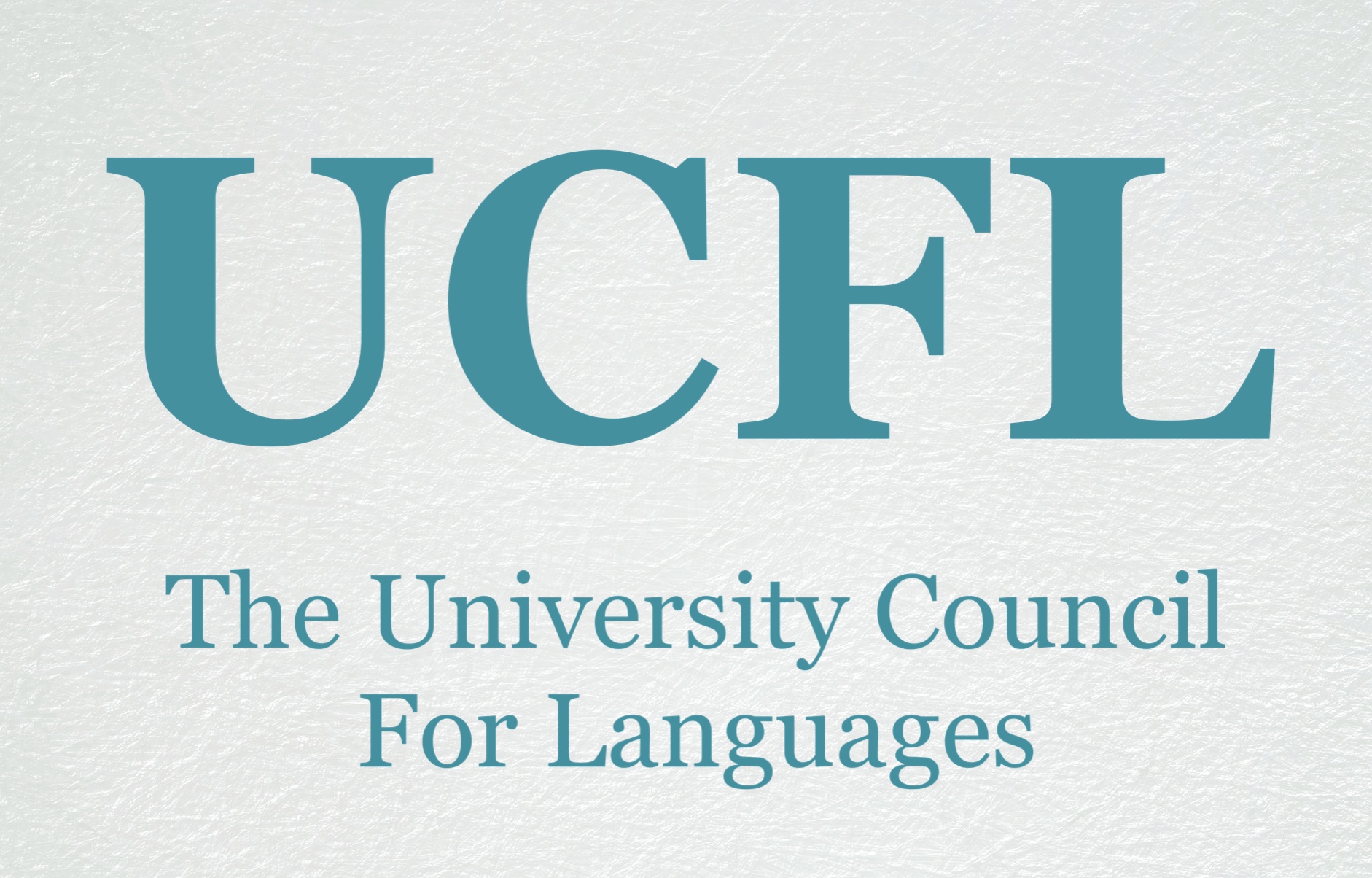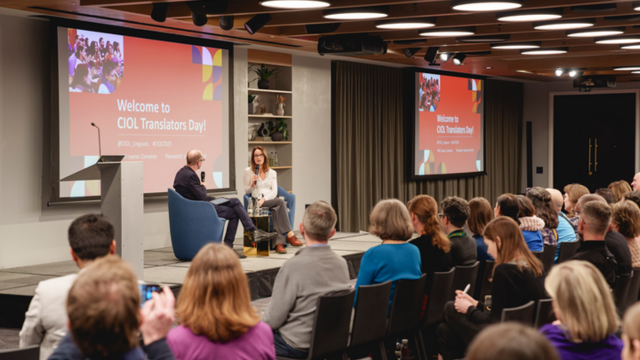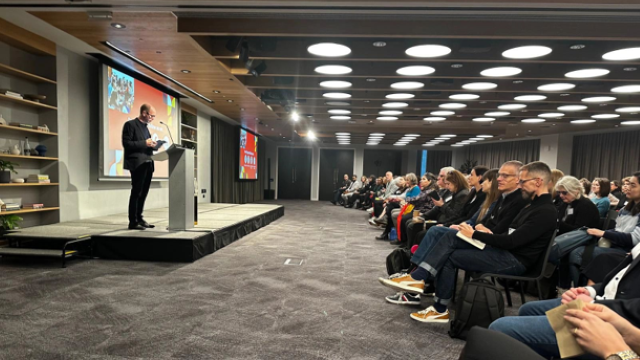-
QUALIFICATIONS
- For Linguists Worldwide
- For UK Public Services
- Preparation
- Policies & Regulation
-
MEMBERSHIP
- Join CIOL
- Membership grades
- NEW for Language Lovers
- Chartered Linguist
- Already a member?
- Professional conduct
- Business & Corporate Partners
-
ASSESSMENTS
- For Second Language Speakers
- English as a Second Language
-
EVENTS & TRAINING
- CPD, Webinars & Training
- CIOL Conference Season 2025
- Events & Networks
- CIOL Mentoring
-
NEWS & VOICES
- News & Voices
- CIOL eNews
- CIOL Awards
- The Linguist
- Jobs & Ads
-
RESOURCES
- For Translators & Interpreters
- For Universities & Students
- Standards & Norms
- CIOL & AI
- All Party Parliamentary Group
- In the UK
- UK Public Services
- Find-a-Linguist
Language learning for everyone: Insights from the 2024 GCSE results
 Some reflections on the 2024 GCSE uptake and outcomes in languages studies in England and Wales, by CIOL Council Member and Educational Trust Board Vice-Chair Marcela Cazzoli who is also Vice Chair of the University Council For Modern Languages. See also the links to further articles, reviews and responses from across the media.
Some reflections on the 2024 GCSE uptake and outcomes in languages studies in England and Wales, by CIOL Council Member and Educational Trust Board Vice-Chair Marcela Cazzoli who is also Vice Chair of the University Council For Modern Languages. See also the links to further articles, reviews and responses from across the media.
‘Regret’ is not a word often associated with the UK public’s engagement with language learning, yet it’s a sentiment that many feel when reflecting on their education. While Brexit and the loss of programs like Erasmus+ have impacted language learning opportunities, the 2024 GCSE results reveal ongoing challenges and new trends in language education. Despite the narrative that English suffices as a global lingua franca, the reality is that languages remain highly valued by many, with a growing recognition of the importance of multilingualism.
This year, the 2024 GCSE results for Modern Languages have brought these discussions back into the spotlight. The data presents a complex landscape: while the overall number of students taking language exams remains lower than in previous decades, this year there has been a slight increase in the number of students achieving top grades, particularly in less commonly taught languages. There has also been a modest increase in the number of students taking French and German, while Spanish has continued its growth in popularity. Additionally, students taking Mandarin and Arabic have shown higher success rates, reflecting a growing interest in non-European languages.
Public surveys indicate strong support for making language study compulsory in schools. Last year, the British Academy conducted a survey to gauge the attitudes of British adults towards language learning. Contrary to some expectations, the survey revealed strong public support for making language study compulsory: 71% of UK adults believe that studying a language should be mandatory in secondary school, and 64% think it should be compulsory in primary school. The survey’s most striking finding, however, is that nearly half of the respondents who are not fluent in a modern language regret not having engaged more with languages during their school years.
The 2024 GCSE results, however, show that this enthusiasm is not yet translating into effective policy changes or increased student engagement. The persistent issues of a narrow curriculum, the perceived difficulty of language GCSEs, and a shortage of qualified teachers continue to hinder progress, contributing to the ongoing decline in language study. On the other hand, research on blended learning tells us of an emerging trend in schools: students who supplement their traditional learning with language apps and online resources are outperforming their peers. This is supported by The British Council’s 2023 report, which highlighted that 39% of UK adults used mobile apps to learn a new language and those who integrated these tools with their school studies reported better language retention and performance.
Digital learning is key
Digital learning should play a stronger strategic role in our approach to addressing the decline in language learning. Whether through language apps or online resources, the accessibility, flexibility, and creativity of digital learning are drawing people of all ages to give languages a try. The 2024 “Language Trends” report by the British Council builds on insights from previous years, particularly the 2021 and 2022 reports, by continuing the discussion on the integration of technology in language learning. The report highlights how digital tools have become an increasingly vital component of language education, a trend that was accelerated by the COVID-19 pandemic. When combined with traditional teaching methods, these tools have been shown to enhance student engagement and improve language retention. Schools that successfully integrate digital resources into their curricula often experience higher levels of student interest and sustained participation in language studies.
To foster a more linguistically skilled and culturally aware society, the school language curriculum must draw inspiration from these effective real-world digital practices. By ensuring that language education is accessible, flexible, and creative from the outset, schools can teach practical language skills alongside fostering an appreciation for diverse cultures and societies.
Languages are integral to our identities, cultures, and daily lives. With hundreds of Home, Heritage, and Community languages spoken across the UK, they are deeply embedded in the fabric of society, contributing significantly to the nation’s cultural richness and identity. A more established integration of digital tools into education could not only deepen students’ understanding of the world but also inspire the confidence needed to pursue language education at higher levels.
Other responses to 2024 GCSE results
UCFL are pleased to flag an important article in The Conversation about GCSE results in languages and what they mean for the wider context. The article was written by Sascha Stollhans, Associate Professor of Language Pedagogies and Pro-Dean for Student Education at the University of Leeds.
Further coverage of this year’s GCSE and A-level results, and some responses, are also available from the following links:
Association for Language Learning
This article was originally published on the University Council For Languages website here. For more on UCFL click on this link or the logo below:
Filter by category
More
The Chartered Institute of Linguists (CIOL), Incorporated by Royal Charter, Registered in England and Wales Number RC 000808 and the IoL Educational Trust (IoLET), trading as CIOL Qualifications, Company limited by Guarantee, Registered in England and Wales Number 04297497 and Registered Charity Number 1090263. CIOL is a not-for-profit organisation.









